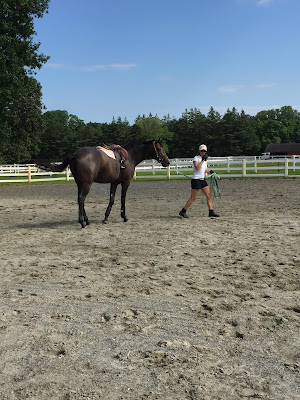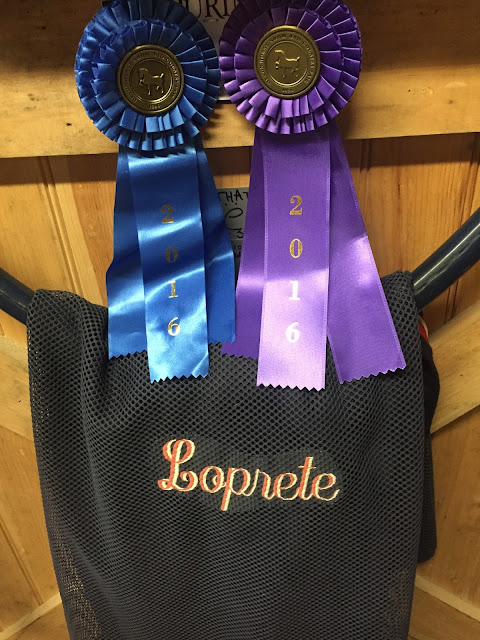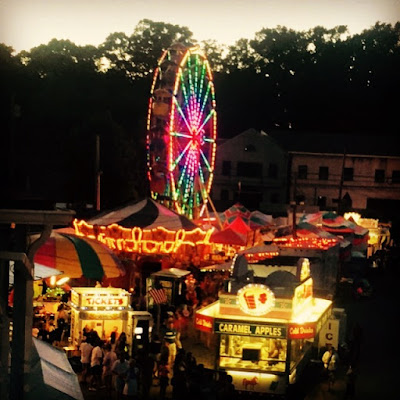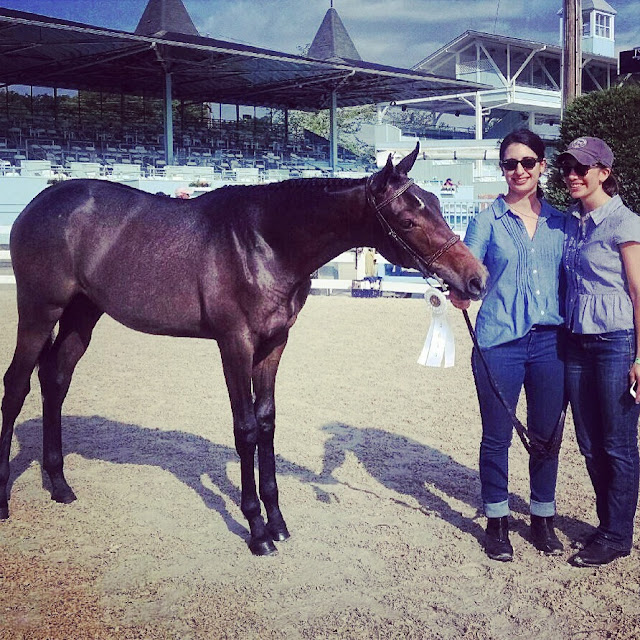How the media acknowledges women's athletic accomplishments has become a hot button issue recently. Some have pointed out that maybe we haven't realized the issue sooner, since the full ambit of women's sports are thrust into the limelight only every four years during the Olympics. Or maybe now, we have finally come to the realization that women can be athletic stars in their own right, without their success being attributed to a man's role in that woman's life, or without a man's accomplishments being used as a reference point. Either way, it made ME realize how lucky we are to have a sport where women and men compete head to head for the same medals.
 I would have loved to make some comments about women equestrians not getting the coverage they deserve, but then again "women's equestrian" would have to exist as an Olympic sport in order for me to do that. The fact is, there is no such thing. When compared to the full list of Olympic athletic events, equestrian sports have always been considered unique. But in two very real ways the sport is as unique as they come. Not only does it require #twohearts, but it is fairly judged among both sexes.
I would have loved to make some comments about women equestrians not getting the coverage they deserve, but then again "women's equestrian" would have to exist as an Olympic sport in order for me to do that. The fact is, there is no such thing. When compared to the full list of Olympic athletic events, equestrian sports have always been considered unique. But in two very real ways the sport is as unique as they come. Not only does it require #twohearts, but it is fairly judged among both sexes.
Recently the FEI made an international effort to bring awareness to the bond between horse and rider that separates equestrian from every other sport through the #twohearts campaign.
If you're like me, you started to get a little wet-eyed reading the article on the FEI's campaign. Yes, it does take two hearts. To win an equestrian gold medal two hearts have to be so connected, so focused, and so in sync that they can complete the most technically complicated and rigorous challenges better than everyone else in the world. (Whether that makes equestrian sports twice as hard as every other sport is up for you to decide, but I think we have a pretty good argument...).
In light of the current upset surrounding media coverage of female athletic accomplishments, I think equestrians have more to be proud of than just two hearts -- we have historically and consistently been all about two genders as well.
Equestrians rejoice. Let us not forget that when Beezie helped the team win a gold medal in 2004 and again in 2008, no one said she owed it to anyone, no one said that a man had made her into the rider she is, no one gave her a nickname after a male athlete. At that time, Beezie Madden was Beezie Madden, one of the greatest Olympic Grand Prix riders in the world. This fact was undisputed and applied across the board: she was part of a team that together was better than every other man and woman in the world. Yes, her list of accomplishments is longer than the list of horse shows I've been to. But the point is, every single accomplishment she, and most other equestrians, earn are on an even playing field comprised of both women and men. When equestrians win, they win as the best horse/rider combination. No barrier stands between women & men, or mares & geldings for that matter.
Oh, and did I mention how equestrian athletes span the generations? With athletes as young as 18 and as old as 62, raw talent and experience get an equal chance at victory. Unlike gymnastics and swimming, there are several equestrian athletes aged beyond 25. (Just yesterday, Phillip Dutton won an individual bronze medal in eventing at the age of 52, as one of the oldest US athletes to compete in the Olympics. Beezie is the same age.).

Despite all the positives equestrian sports have to offer, some believe there is a bit of an "optics problem" when it comes to how the general public views equestrian Olympic events. Some common views from those outside the horse world are that its an "elitist" sport, that the horses do all the work, and that the general public can't follow what's happening because they are unfamiliar with the sport. These are hard arguments to combat: (1) it generally is an elitist sport on the Olympic level, attainable to few very talented and very financially fortunate people [like most Olympic athletes I might add], (2) the horses are doing half the work, and (3) most people probably don't know what's going on. But, despite the legitimacy of all those complaints, the sport itself is still worth it's place in the Olympic games given it is the ONLY sport with absolute equality among genders. It may just be me, but I think the rest of the world is jealous of just how progressive we equestrians are.
This Olympics, 200 horse and rider combinations from 43 countries compete for six gold medals in Jumping, Dressage and Eventing. You can find the schedule of events here.































































